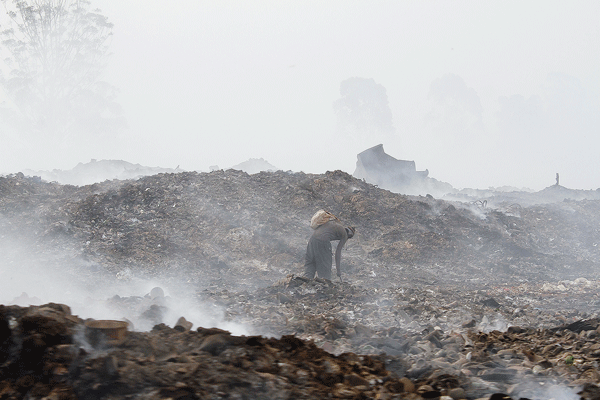
Cathrine Denga RECYCLING has become common practice around the world.
But, it has not proven to be the perfect solution as countries that were once big on recycling had to take a few steps back and re-evaluate the associated costs and impact.
The process of recycling is long and differs from one material to the other.
Before we introduce these elements to consumers, we must start off with the question: “Is this material recyclable or not”?
We should begin our strategic implementation through robust policies that are strictly monitored.
A good example of this is the banning of non-recyclable styrofoam food containers (kaylites), which was a bold move taken by the government in 2017.
Economists and citizens among other groups of stakeholders, have been calling on the government to recapacitate the manufacturing industry to enable dormant factories to resume operations and create employment among many benefits.
Granted, this is necessary to increase gross domestic product (GDP).
- Chamisa under fire over US$120K donation
- Mavhunga puts DeMbare into Chibuku quarterfinals
- Pension funds bet on Cabora Bassa oilfields
- Councils defy govt fire tender directive
Keep Reading
However, it is important that business and economic architects work with the government to create non-linear models that are totally different from the linear constructs that were there when certain factories were operational a decade or so ago.
What is the linear model?
As it has been in many countries, products are designed and produced for consumerism without a clear continuity process in mind, through the take-make-dispose model.
This creates a dead-end for the product (waste).
On the contrary, non-linear models pay special attention to diversity and synergies that produce products as a source of value with a continuity clause in the cycling of resources.
Recycling then becomes a solution for an already existing linear model where the damage had already been done.
Technology companies like ZOL have taken up facilitating the recycling of e-waste, which refers to cellphones, batteries, laptops among other gadgets, which would have come to the end of their usable life.
In partnership with EnviroServe, a recycling company based in the United Arab Emirates (UAE), ZOL collects the e-scrap and exports the same to the UAE for recycling.
Recycled e-waste can be reused as raw materials, putting it back in the production cycle.
Since our manufacturing industry is not operating at the highest possible levels, our attention should, therefore, be on the type of imports we are bringing in and allowing to circulate in our economy to cater for demand gaps.
Should this be enforced globally, manufacturers across the world will be forced to rethink the production of certain items due to a decline in sales and revenue.
Granted, this may be easier said than done, but not entirely impossible because there are a lot of innovators who have taken it upon themselves to create sustainable alternatives that ensure product continuity.
Upcycling, as it has come to be termed, is a few steps ahead of the conventional recycling.
It is such considerations that businesses should critically reflect on as they build business strategies or develop new products.
Boards of directors should, in fact, demand clear full life cycles of certain products before signing off.
Some Zimbabwean companies have been making efforts at promoting recycling or encouraging it by way of providing colour coded recycling bins that allow for waste to be disposed of systemically.
Big players in various industries should consider partnerships with recycling agencies.
In a 2015 report by the Environmental Management Agency (Ema), waste management is one of the most pressing environmental challenges.
About 18% of waste generated here is plastic.
Given that the report is almost six years old, odds are that these numbers have increased significantly.
The capacity to recycle in Zimbabwe is quite low as players involved are either focused on certain less complex materials or operate at a small scale.
A 2018 analysis done by the World Bank said less than 20% of global waste is recycled each year.
In turn, global waste will increase by 70% by 2050 if we do not take urgent action.
Failure to recycle often leads to unethical waste disposal methods.
Ema grants licences to dispose of waste materials in line with guidelines set by the Standards Association of Zimbabwe.
However, it does not follow that the issuance of a licence presents no damage to the environment.
A lot of work is still required in terms of waste management.
Indeed, it is a process.
But discussions, policies and strategy development should be made the public-private agenda with urgency.











